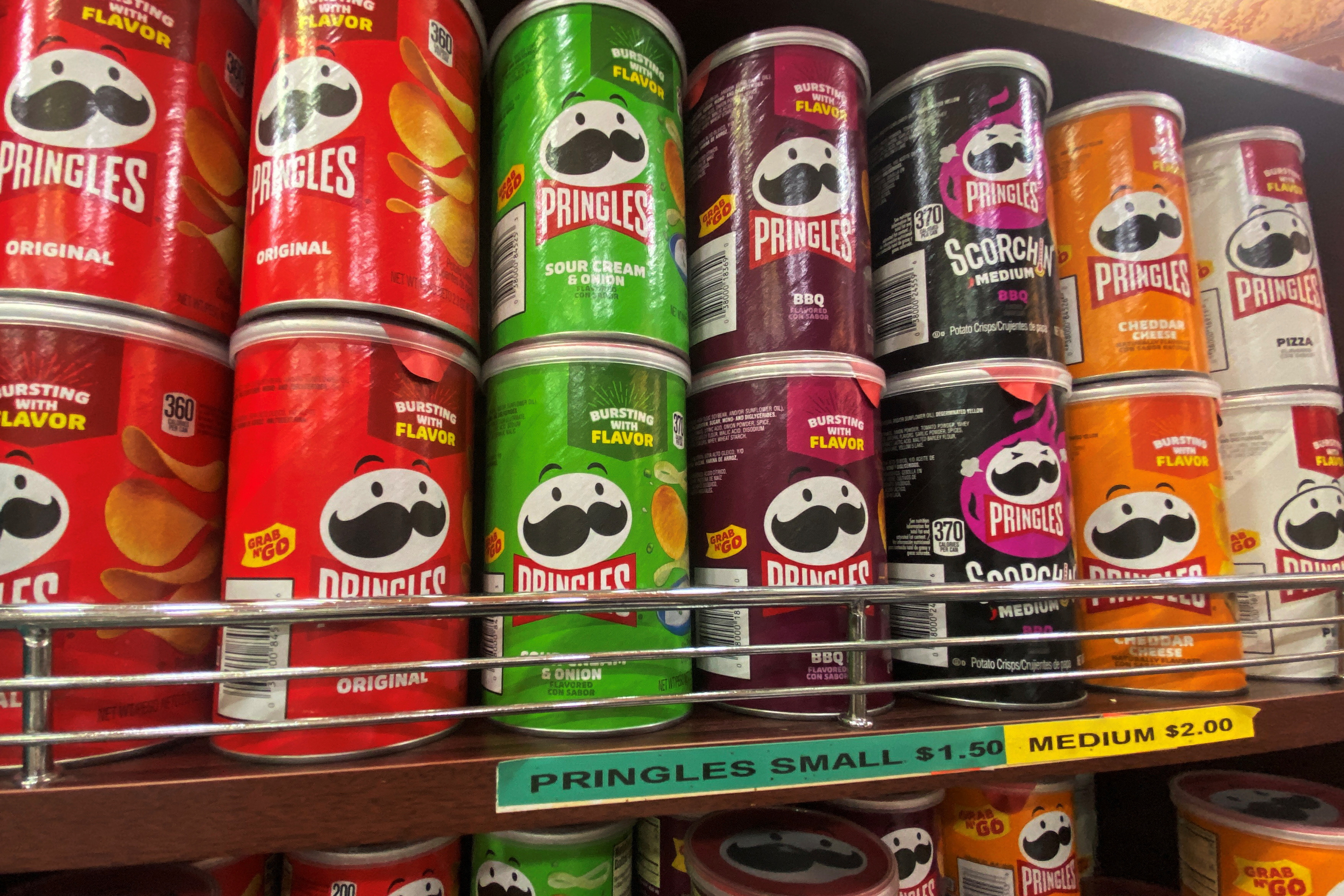By Anirban Sen, Savyata Mishra, Jessica DiNapoli and Abigail Summerville
NEW YORK (Reuters) – Family-owned candy giant Mars is buying Cheez-It maker Kellanova in a nearly $36 billion deal, bringing together brands from M&M’s and Snickers to Pringles and Pop-Tarts in the biggest deal of the year so far to.
Mars said Wednesday it will pay $83.50 per share for Kellanova, a premium of about 33% to its Aug. 2 closing price before Reuters first reported that Mars was exploring a deal for the frozen breakfast food maker. such as Morningstar Farms and Eggo.
The deal is a bet that consumers will continue to indulge in branded snacks, and comes at a time when packaged food companies are facing stagnant growth after years of raising prices to cover skyrocketing inflation.
The combined company aims to keep prices stable, Mars CEO Poul Weihrauch said in an interview with Reuters on Wednesday, and not pass on the costs of the deal to consumers.
“We are a big and stronger company,” Weihrauch said. “We hope to be able to absorb more costs into our structure and help alleviate the challenges in an inflationary environment.”
According to data from the U.S. Department of Agriculture, food prices in the United States increased by about 25% between 2019 and 2023, far more than in other categories such as housing and medical care. But inflation is starting to moderate, according to US consumer price index figures released on Wednesday.
Consumers in the United States and Europe – key markets for both companies – have been looking for cheaper alternatives or ditching brands for cheaper private label items.
Kellanova has seen private label eroding its cereal market share in Europe and other areas, CEO Steve Cahillane said. According to securities filings, the company sells sweet breakfast cereals such as Smacks, Frosties and Coco Pops in Europe.
The U.S. packaged food sector is seeing robust deals as companies look for scale to withstand the impact of inflation-weary consumers cutting back and shifting their purchases to private label brands.
“We believe a more conducive deal-making environment could also encourage some of the industry’s major packaged food companies to shift their focus from portfolio cleansing and portfolio divestments to a more offensive, acquisition-oriented stance with a focus on growth,” Barclays analysts wrote in a note on Wednesday.
Investors are also concerned about a drop in sales due to greater adoption of weight loss drugs like Ozempic and Wegovy, which curb appetite and lead to feelings of satiety.
Weihrauch said half of the company’s portfolio will consist of “healthy” snacks, such as low-calorie Special K, Kind bars and Nutri-grain.
Unlike rival Nestle, Mars currently has no plans to develop new products specifically for people who use the weight-loss drugs, Weihrauch said.
Mars said it plans to strengthen its snacks division, invest locally and introduce more healthy options through the deal as the category is “attractive and sustainable.”
The company has a 4.54% share of the US snack market, according to data from GlobalData, while Kellanova has about 3.9%, well behind market leader PepsiCo (NASDAQ:).
Kellanova sells noodles in Africa, although the business has faced hurdles due to the continent’s economic problems.
Cahillane said Kellanova’s distribution network in Africa offers Mars the opportunity to bring its sweets to the continent. Mars’ presence in China presents a “huge” opportunity for Pringles, Cahillane said.
MARS’ BIGGEST WEDDING EVER
The acquisition, which dwarfs Mars’ $23 billion acquisition of Wrigley in 2008 and is one of the largest deals ever in the packaged foods industry, is not expected to face too many antitrust roadblocks due to the limited overlap in the two companies’ offerings. , legal experts had told Reuters.
Following the deal’s completion in the first half of 2025, Kellanova will become part of Mars Snacking, led by Global President Andrew Clarke, the companies said. It will be based in Chicago. Cahillane, a veteran of the packaged food and beverage industry who previously held positions at Coca-Cola (NYSE:), said he would leave the combined company once the deal is completed.
In a filing with the regulator, Kellanova said the closing date for the deal could be extended by up to 12 months if the companies do not receive the necessary regulatory approvals by August 2025.
Shares of Kellanova rose about 8% to $80.25 in early trading. Excluding debt, the deal values Kellanova at $28.58 billion, based on the number of shares outstanding, according to Reuters calculations.
Kellanova, which spun off from WK Kellogg (NYSE:) last October, is rooted in a salty snacks business and sells breakfast cereals outside North America. WK Kellogg was left with the North American grain operations of Kellogg, the original parent company.
Since splitting from WK Kellogg, Kellanova’s shares have traded at a discount to peers like Hershey and Mondelez (NASDAQ:) International, making the company a takeover target.
Investment firm TOMS Capital Investment Management, which took a “significant” stake in Kellanova earlier this year and was in talks with the company to improve shareholder returns, is happy with the deal price, a person familiar with the matter said. TOMS declined to comment.
Under the terms of the deal, Mars will have to pay a termination fee of $1.25 billion in the event of failure to obtain regulatory approvals, while Kellanova will have to pay Mars $800 million in the event of a change in the board’s recommendation management.

Mars plans to finance the deal with cash and a $29 billion debt financing commitment from JPMorgan Chase (NYSE:) and Citi.
Citi and law firm Skadden, Arps, Slate, Meagher & Flom advised Mars. Goldman Sachs and Kirkland & Ellis advised Kellanova, while investment bank Lazard (NYSE:) advised Kellanova’s board of directors.


